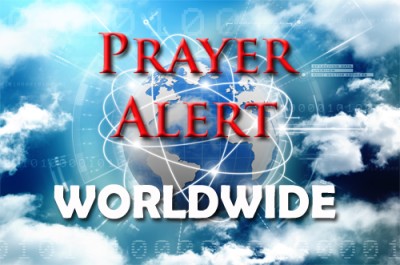Several organisations, including councils, solicitors, an NHS trust, and the police, have faced reprimands for breaching the personal data of domestic abuse victims in the UK. The Information Commissioner has warned that such data breaches put the lives of victims at risk, with many cases involving the disclosure of the victim's home address to their alleged abuser. The breaches have included accidental messages revealing new addresses, and the posting of court bundles containing addresses to the wrong recipient, necessitating urgent relocation of victims. The commissioner has issued reprimands to seven organisations involved in data violations impacting domestic abuse survivors since June 2022. He has called for proper training and systems to prevent such incidents in the future. Domestic abuse charities emphasise the importance of protecting personal information, as abusers often escalate their control after separation. The data violations, which are seen as severely undermining women's safety, highlight the urgent need for improved responses to domestic abuse by public services.
University students in the UK are facing unprecedented rent increases as the value of maintenance loans fails to keep pace. Rents have risen by over 8% since 2022, with some cases seeing increases of up to 27%. The demand for accommodation has soared, with nearly 390,000 more students needing housing in the past decade. Rising operational and development costs, high inflation, and a decline in new bed space delivery have contributed to the increases. The average private sector rent outside London now exceeds £7,600 per year, consuming 77% of the maximum student maintenance loan allowance. Fewer than 10% of beds in major university cities are affordable to students receiving maintenance loans and grants. Rental growth in purpose-built student accommodation has reached 9.4%, exacerbating the affordability challenge. Students are increasingly taking on part-time work to cover expenses, negatively impacting their studies. To address the crisis, there have been calls for increased maintenance loans, rent freezes, and rent controls.
Mike Pilavachi DBS referral
28 Sep 2023The founder of Soul Survivor Watford has been referred to the Disclosure and Barring Service (DBS) following a national safeguarding investigation that found he had engaged in inappropriate relationships and physical interactions with young individuals. The Church of England has confirmed that a referral has been made for Canon Rev Mike Pilavachi to be considered for the DBS barred lists, which prohibit individuals from working with vulnerable groups. The DBS will assess whether Pilavachi should be placed on either or both of the lists. Pilavachi resigned from his position as associate pastor of Soul Survivor Watford in July and stated that he would not comment further on the allegations, expressing his desire for the healing of the Church and seeking forgiveness from those he may have hurt. The DBS does not comment on individual cases.
UK's first drug consumption room go-ahead
28 Sep 2023Officials in Glasgow are expected to approve plans for the UK's first drug consumption room. The facility, known as the Safe Drug Consumption Facility (SDFC), would allow users to take their own drugs under the supervision of health professionals. Campaigners believe the facility could be ‘life-changing’ in addressing Scotland's high drug death rate, which remains the highest in Europe. The UK government does not support the plans but has stated it will not block the pilot. The proposed location for the facility is in Glasgow's east end, where a heroin assisted treatment service has been operating since 2019. The Scottish government has committed funding for the first year of operation, and Glasgow's Health and Social Care Partnership will cover building costs and necessary redesign. The plans will be presented to the city council's Integration Joint Board for approval. The move comes after the city council became the first local authority in the UK to formally support the decriminalisation of drug consumption.
Youth vs Europe: 'unprecedented' climate trial
28 Sep 2023Six young people from wildfire and heatwave-affected areas in Portugal have taken 32 European governments to court, accusing them of violating their human rights by not taking sufficient action on climate change. The case, filed in September 2020 against all the EU member states and also Britain, Switzerland, Norway, Russia, and Turkey, is the largest climate case ever heard by the European Court of Human Rights (ECHR) in Strasbourg. A ruling is expected in the first half of 2024. The applicants argue that the failure to address climate change endangers their rights to life and physical and mental well-being. One of the applicants, 15-year-old Andre Oliveira, highlighted the impact of heat extremes on his ability to exercise and spend time outdoors, leading to sleep difficulties and worsening conditions due to weak climate policies.
Ukrainian forces’ ‘success’ near Bakhmut
28 Sep 2023Ukrainian forces have reportedly achieved success in villages near Bakhmut, a key town previously seized by Russian forces. According to Ilia Yevlash, spokesperson for Ukraine's forces in the east, Russian troops fired on Ukrainian soldiers 580 times and used aircraft four times. Ukrainian troops have made significant progress, with defenders continuing to repel the enemy under heavy fire. The spokesperson claimed that 141 Russian troops were killed and several pieces of artillery equipment destroyed. Ukrainian forces in the south are reportedly preparing to advance towards the Sea of Azov, prompting Russian forces to bring in reserves. Volodymyr Zelenskiy commended the successes in his recent address, noting damage to Russian logistics and headquarters. Additionally, Ukraine has conducted attacks inside Russia and Russian-occupied Crimea. The counteroffensive operations launched in early June have resulted in gains in eastern and southern regions, despite the challenging conditions of heavily mined and destroyed areas.
Russian opposition leader Alexey Navalny has lost his appeal against a 19-year prison term, which was added to his existing sentence last month. The ruling was upheld by a Moscow court, with the proceedings closed to the media except for the reading of the verdict. Navalny, considered the most prominent figure in Russia's opposition movement, has been seen as a symbol of hope for many, with supporters likening him to Nelson Mandela. His political movement has been banned, and key figures have either been jailed or forced to flee the country as part of a government crackdown on dissent. His latest sentence was imposed on charges related to alleged ‘extremist activity’, which he denies. He was already serving an 11-and-a-half-year sentence on fraud charges, which he also described as politically motivated. Navalny's appeal rejection comes despite international admiration for his return to Russia after being poisoned with a nerve agent in Siberia, an act he attributes to the Kremlin. The Russian government has sought to diminish Navalny's political significance and portrays him as an extremist and a puppet of foreign intelligence agencies.
Iraq: 100+ dead in wedding blaze
28 Sep 2023A fire at a Christian wedding celebration in Iraq's Nineveh province, near \Mosul, has resulted in over 100 deaths and at least 150 injuries. The blaze reportedly started after fireworks were lit during the celebration. Witnesses reported that the bride and groom survived, contrary to initial reports. The fire broke out in a large events hall, with up to 900 people in attendance. The building, made of highly flammable construction materials, quickly collapsed. Preliminary findings suggest that the hall's exterior was decorated with illegal, highly flammable cladding. Ambulances and medical crews were dispatched to the site, and efforts are being made to provide relief to those affected. The number of Christians in Iraq has significantly decreased in recent years, with the current estimate at 150,000 compared to 1.5 million in 2003.







